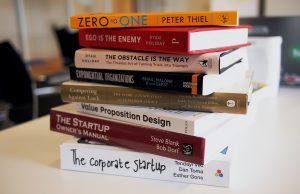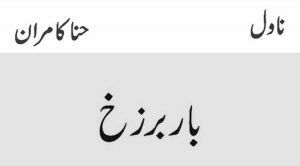“Kareena Kapoor’s Right to Work: Trolling Over Pakistani Designer Meet Misguided”

By Anil Merani: Kareena Kapoor is under fire for getting snapped with a Pakistani fashion designer in the light of the Pahalgam massacare.
The incident, occurring on April 27, 2025, and reported widely by April 29, 2025, raises questions about the ethics of trolling, celebrity rights, and public sentiment in sensitive geopolitical contexts. This note further aims to explore the incident in detail, considering legal, ethical, and social dimensions and provides a thorough examination of the factors at play, including the legal rights of individuals in a democratic society, the ethical considerations of public sentiment in the context of globalized industries, and the social dynamics of online trolling.
On April 27, 2025, Kareena Kapoor was in Dubai to promote the launch of a jewellery brand. During this visit, she was photographed posing with Faraz Manan, a Pakistani fashion designer based in Dubai, who shared the photos on his Instagram with the caption “With the OG”The photos went viral, leading to significant backlash on social media, with netizens labelling her “shameless” and “gaddar” (traitor), especially given the recent Pahalgam attack, where 26 people, mostly tourists, were killed by terrorists linked to the banned Pakistan-based Lashkar-e-Taiba (LeT) The timing, just days after the attack, fueled perceptions of insensitivity, with comments like, “While India is at war with Pakistan, Kareena Kapoor Khan is busy doing a photoshoot in Dubai with Pakistani designer Faraz Manan”
Kareena’s Rights as a Free Indian Citizen
Kareena Kapoor, as a free Indian citizen, has the legal right to meet anyone, including individuals from Pakistan, for professional or personal reasons, provided it does not violate any laws. Indian law does not prohibit interactions with Pakistani nationals, especially in neutral locations like Dubai, where the meeting occurred. Celebrities, like all individuals, have professional lives that often involve international collaborations, and it is unreasonable to expect them to alter these based solely on public sentiment. The fashion industry, in particular, is global, with designers like Faraz Manan working with clients across borders, including Indian celebrities like Kareena, Karisma Kapoor, Sridevi, and Ranbir Kapoor . Reiterating Kareena’s legal rights should make the audience feel supportive of her freedom as an individual.
Faraz Manan, who started his career in 2003 and owns a luxury store in Dubai, has a long-standing professional relationship with Kareena, having dressed her multiple times in the past This context suggests the interaction was part of her professional engagements, not a political statement. The meeting’s location in Dubai, a neutral hub for international business, further underscores its professional nature, as opposed to a politically charged context within India or Pakistan. This professional context should reassure the audience about the legitimacy of the interaction.
Public Reaction and Trolling
The trolling, primarily on social media platforms, included calls for boycotts and harsh labels like “traitor,” with some referencing her past support for Palestine as inconsistent with her current actions However, these reactions appear to be driven by emotional responses to the recent attack rather than a rational critique of her actions. The Pahalgam attack, claimed by The Resistance Front (TRF), part of LeT, heightened nationalist sentiments, leading to perceptions that any association with Pakistanis is insensitive.
Notably, Kareena had already expressed condolences for the attack on her Instagram stories on April 23, 2025, stating, “Beyond heartbroken for the victims and their families. Praying for the lives lost #Pahalgam” This indicates she was aware of and sensitive to the tragedy, yet the trolling persisted, suggesting it was more about venting anger than addressing her actions. As of April 29, 2025, she has not publicly responded to the trolling, choosing to focus on her work. The persistent trolling, however, could have significant implications on her mental well-being and professional life, raising questions about the ethicality of such public reactions.
Ethical Considerations
From an ethical standpoint, the question is whether trolling is justified given the context. Trolling, especially online, often crosses into harassment and is not constructive. While public figures like Kareena are subject to scrutiny, they are also individuals with personal and professional autonomy. Meeting Faraz Manan, a designer, does not equate to supporting terrorism or taking a political stance against India. The interaction was professional, and Faraz’s nationality should not be a barrier, given the global nature of fashion. Comparisons to a “ban on Pakistani artists in India” are misplaced, as Faraz is a designer based in Dubai, and the meeting was not in India.
Some might argue that celebrities should be mindful of public sentiment during sensitive times, especially post-attack. However, this expectation can be unreasonable, as it places an undue burden on individuals to align every action with collective emotions, which vary widely. Kareena’s meeting with Faraz was not flaunted; the photos were shared by him, not her, further diminishing the argument t of intentional provocation
Comparative Analysis
To contextualize, consider past instances where Kareena faced trolling, such as for her fee demands or naming her sons Taimur and Jehangir, which also drew public ire. These cases highlight a pattern of public scrutiny, often driven by emotional reactions rather than reasoned critique. In contrast, her interaction with Faraz Manan is professional, not personal, and lacks the cultural or religious sensitivity of naming choices, making the trolling here seem particularly misplaced.
Conclusion
Given the legal rights of Kareena as a free Indian citizen, the professional nature of her interaction with Faraz Manan, and her prior expression of sympathy for the Pahalgam attack, trolling her for this incident appears unjustified. While public sentiment is understandable post-tragedy, directing anger at her for a lawful, non-political meeting seems like an emotional overreaction. This analysis suggests that the trolling is wrong, as it infringes on her rights and misinterprets a professional courtesy as a political statement. Emphasizing the emotional overreaction of the public should invoke sympathy towards Kareena.
The post “Kareena Kapoor’s Right to Work: Trolling Over Pakistani Designer Meet Misguided” appeared first on Tellyexpress.














Post Comment